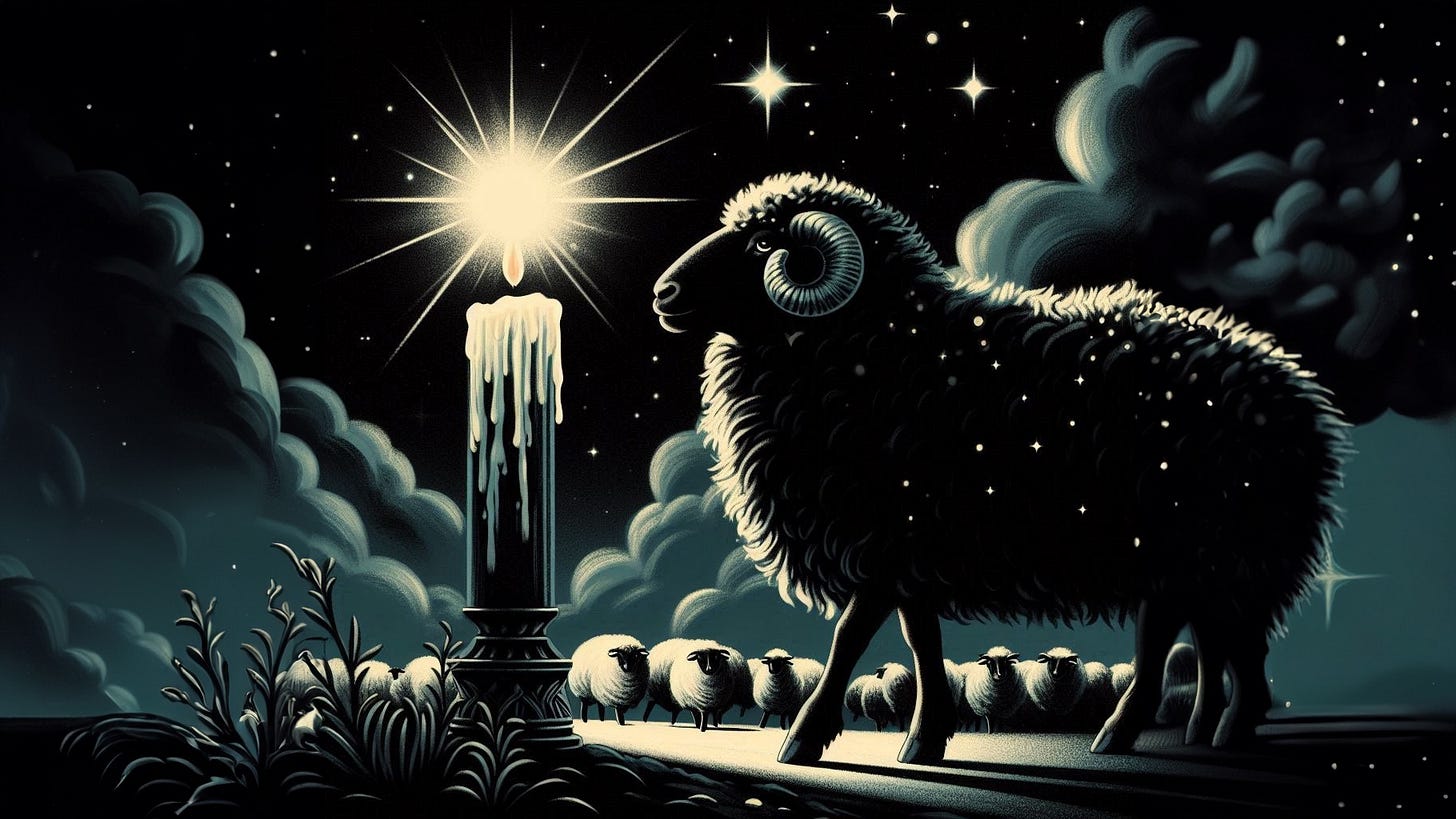The Black Sheep Mindset: It's Not What You Think, But How You Think
The key to constructive disagreement is focusing more on shared processes, not shared conclusions.
I have often aligned myself with others based on their opinions and beliefs. While this approach may seem sound, time and reflection have led me to understand that like-mindedness is better found in how a person thinks than what they think.
As someone who resonates strongly with the black sheep archetype, the past few years have been a considerable period of growth and outgrowth. Friendships, ideologies, values, and beliefs have all been subject to appraisal as I’ve had to determine what stays, what goes, and what new ideas or people I welcome in.
I know that many others (we, the black sheep) have experienced similar upheavals in recent years. Amidst all of the flux, a key insight I want to highlight is this:
We don’t find our fellow black sheep by identifying those who feel and think the same way that we do about x, y, or z. We find our fellow black sheep by identifying those who have a strong capacity to question narratives, think critically, and embody the courage to be wrong.
Given th…





